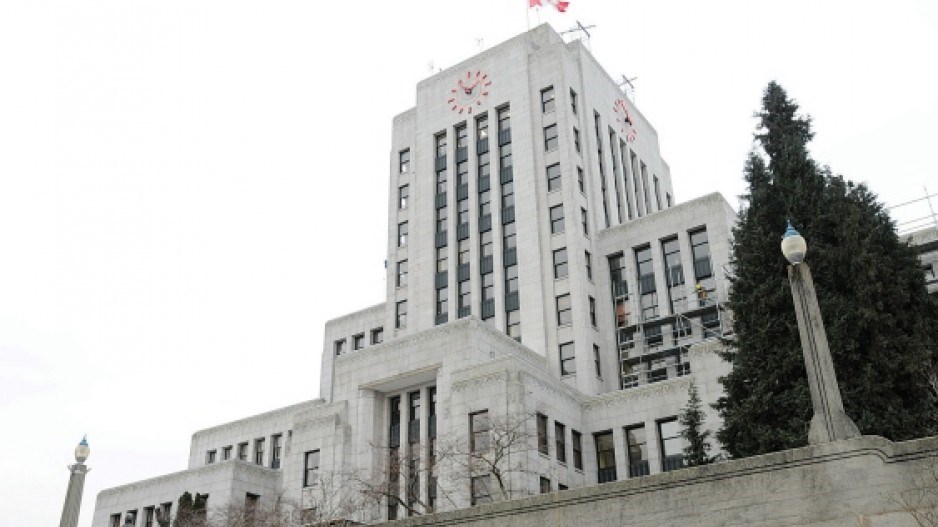Earlier this month, the Progressive Conservative Party earned a new majority mandate in Ontario’s provincial election. The result exemplifies how the barrage of complaints and resentments about governments that we are exposed to on social media every day is not always representative of the people who actually cast ballots.
Voters in Ontario who are dismayed at the outcome of the latest election have pointed to a low voter turnout – just 43.5 per cent of all registered voters in the province – as proof that the current administration is not popular. Vancouverites are not currently a shining example on this file, as only 39.4 per cent of eligible voters participated in the 2018 municipal election.
Research Co. and Glacier Media recently asked Vancouverites about the way we elect our municipal representatives. When we asked questions about how to elect councillors, and just what type of requirements residents should observe before putting their name on the ballot, there is appetite for doing things differently.
A constant source of grief for voters is the absence of a “ward system,” where councillors can be elected in specific constituencies. This year, Vancouver will again rely on the “at-large system,” with voters choosing up to 10 candidates for council. In this month’s survey, 58 per cent of likely voters in the City of Vancouver (up six points since 2020) say they would like to abandon the at-large system in favour of wards.
There is little difference when we look into the views of Vancouverites who voted for the top two vote-getters in the 2018 mayoral race: 66 per cent of those who supported Kennedy Stewart and 63 per cent of those who cast a ballot for Ken Sim would welcome the creation of wards. Also, voters aged 55 and over – who have a habit of showing up to municipal elections in larger numbers than their younger counterparts – are strongly in favour of the idea (69 per cent).
The notion of establishing a geographical connection with representatives is a staple of other electoral processes. When I presented research to the House of Commons Special Committee on Electoral Reform in 2016, a key issue bothered Canadians over the age of 55. They were uncomfortable voting for a list and interpreted proportional representation as a method that would not allow them to know who to take their ideas and whinges to.
In spite of the efforts of the City of Vancouver to get residents more involved in municipal politics, voter turnout was lower in 2018 than in 2014. The ballot was particularly long, featuring 21 mayoral candidates, 71 council candidates, 34 school trustee candidates, 33 park board commissioner candidates and three capital borrowing initiatives.
Four years ago, candidate town halls and debates were problematic, as organizers struggled to decide who to invite and how to adequately allocate speaking time. In a survey I conducted on behalf of the City of Vancouver in late 2018, “too many candidates” was the third reason cited by non-voters for their apathy, after lack of information about individuals and issues.
For the almost two in five eligible voters who did cast a ballot, the 2018 Vancouver Voter’s Guide represented an opportunity to meet the 21 candidates who sought the mayor’s office. The document makes the limitations of a third of these individuals abundantly clear. Inexistent words like “mariquana” are part of policy proposals, along with clear gaffes that a proofreader would have noticed, such as “a individual” and “my intentions is.” We can also read phrases such as “insecurity has hired more private security services,” “cars should be accountable,” “fighting issues for you,” “Canada out of Latvia” and whatever “80 per cent Independent Electrical Engineers” alludes to.
In our latest survey, we continue to see Vancouverites hoping for a system upgrade that would boost the exposure of serious contenders. This month, 62 per cent of likely voters in Vancouver (up two points) believe the number of signatures required for a candidate’s nomination should be raised to 100 from the current 25. In addition, a majority (54 per cent, down one point) think candidates should pay a $500 deposit – as opposed to the current $100 – to register.
Unfortunately, we will have another municipal election with no wards and where the bar remains embarrassingly low for entrants. The grammatically challenged and imprudent individuals whose names or nicknames appeared on the ballot in 2018 – collectively garnering 2.3 per cent of the vote for mayor – show that anyone can find 25 signatures. Unless something changes before the 2026 municipal election, Vancouverites will continue to see the inconsequential demanding to be treated as meaningful. As the 2018 Vancouver Voter’s Guide undoubtedly outlines, these individuals need to help themselves and stop fantasizing that they are in a position to help their community.
Mario Canseco is president of Research Co.
Results are based on an online study conducted from June 7 to June 9, 2022, among 400 municipal likely voters in the City of Vancouver. The data has been statistically weighted according to Canadian census figures for age, gender and region in the City of Vancouver. The margin of error, which measures sample variability, is plus or minus 4.9 percentage points, 19 times out of 20.



